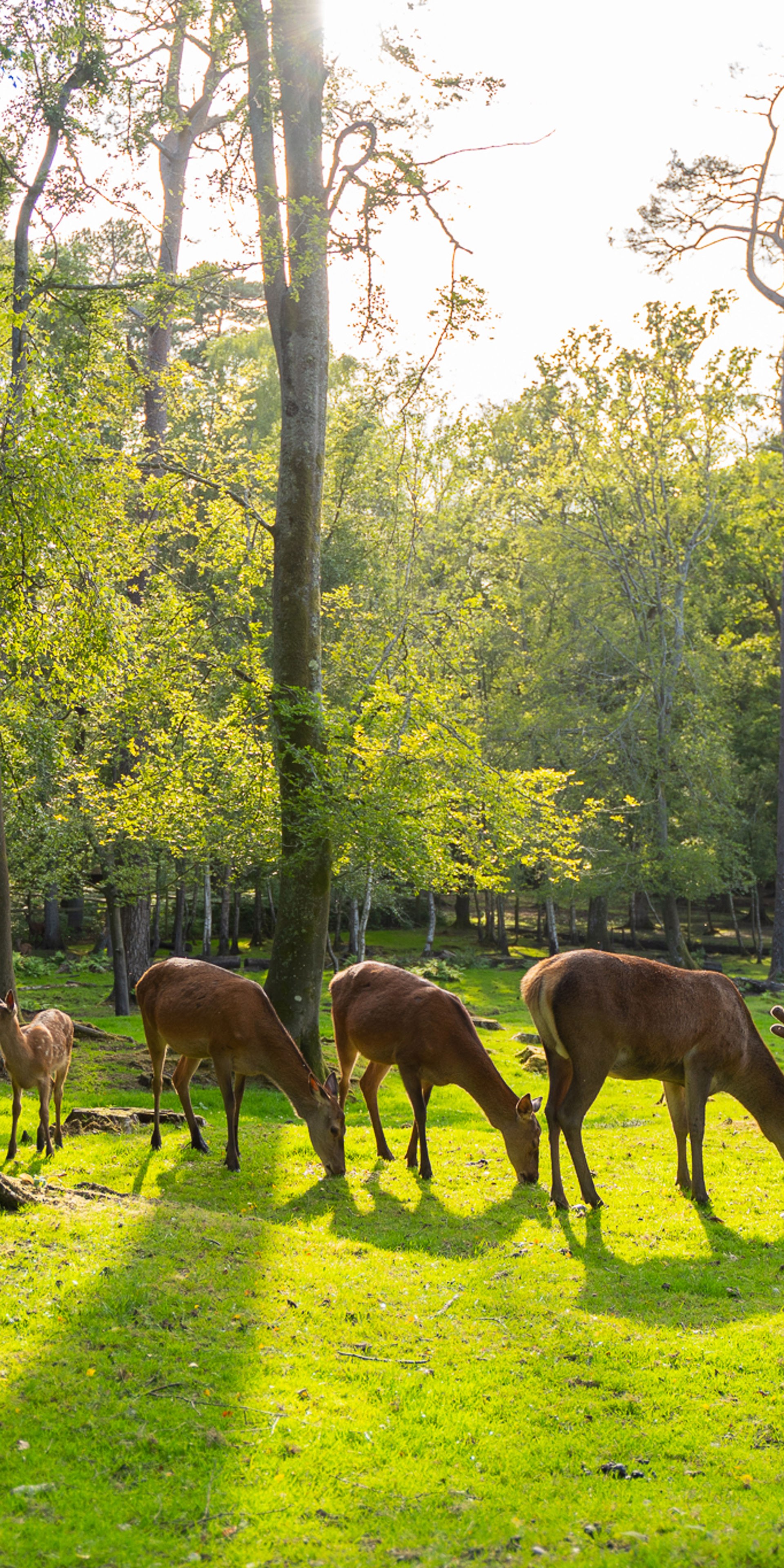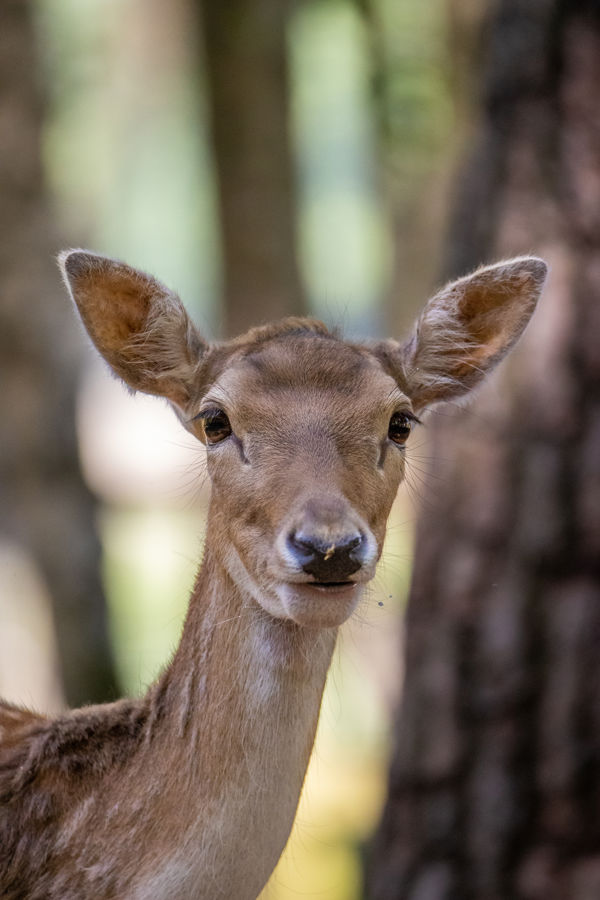Wild Boar

General information
Wild Boar are the ancestor of our domestic pig, native to the forests of Europe, North Africa and Asia. Depending on its home range, the wild boar varies in colour from black, brown, dark grey to a red. They are medium in size with a large head and front end. Due to having very small eyes, their eyesight is particularly poor, but having a long snout gives them a brilliant sense of smell. Although all boar have tusks growing on their bottom lip, the males grow the tusks much larger in size with an extra pair on their top lip. These larger tusks are used for fighting off other males in the breeding season.
Mainly nocturnal, Wild Boar spend around 12 hours a day sleeping. Females are very social living in large family groups of up to 30 members and these groups consist of the breeding females and their young. Males are more solitary, spending most of their time alone but will move closer to the females during breeding season. Unfortunately they were hunted to extinction in the 1600s but were reintroduced for meat farming, with the inevitable escapees now found in many UK woodlands.

Latin name - Sus scrofa scrofa
Class - Mammalia
Order - Cetartiodactyla
Family - Suidae
IUCN Status - Least concern
Habitat - Semi-desert to tropical rain forests, temperate woodlands, grasslands to agricultural land
Distribution - Widespread in Europe, Asia and North Africa
Average Lifespan
10 years in the wild
20 to 25 years in captivity
Threats
Habitat loss and competition for food.
Fun Fact
Babies are called ‘boarlets’ and have stripy coats until they reach 5-6 months old.
Our Residents
Like all pigs, Wild Boar spend a large part of their day rooting with their snouts. Eventually they clear their enclosure of all vegetation so we have to move them to an adjacent enclosure to allow natural regeneration and some reseeding of the grassy areas. So, they can be seen either in their enclosure in Wallaby Wood or in the Deer Encounter.
We currently have Duke, the boar and Duchess, the sow, who arrived from Wildwood Trust in Kent, in April 2021.

Sign up to our newsletter
Join our mailing list in order to keep up to date with park news and special offers.



